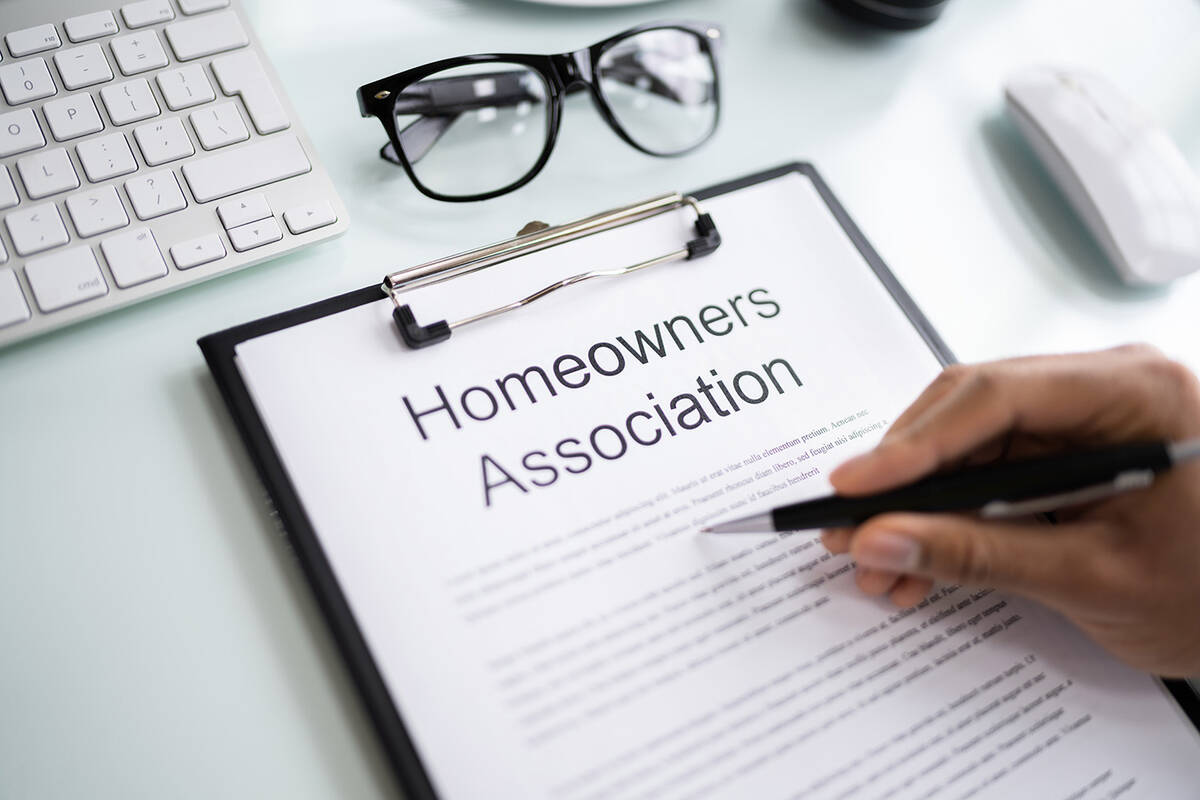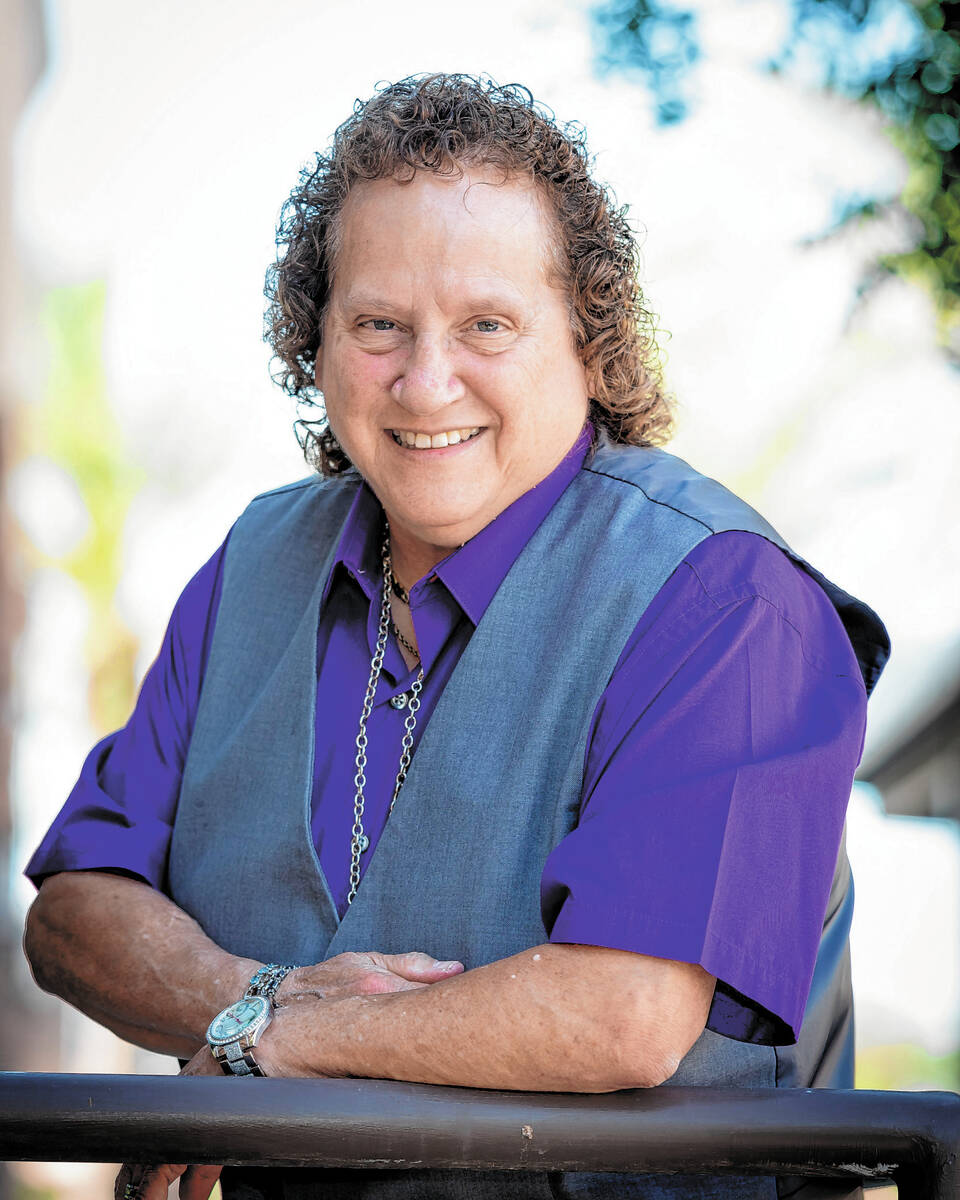Disabled vet’s wife upset about flags improperly displayed
Q: I continue to send emails to our management company regarding that there are several homeowners in our community who are displaying the American flag without the knowledge or etiquette as how to fly the flag. If the American flag is flown during night it must be properly illuminated. They are flying in the dark. They (the flags) are being displayed on side backyard fences. Some in between two town houses and on driveways. And, most of them on the front of houses with no light. I feel very strongly about this because my husband is 100 percent disabled veteran who fought for this country and our American flag, and it feels like a slap in the face.
What can be done, if anything?
A: Nevada Revised Statutes 116.320 pertains to the right of unit owners to display the United States flag, and/ or the state of Nevada’s flag in certain areas and conditions and limitations of this right. The display of the flags can be made of cloth, fabric or paper and can be displayed from a pole or staff or in a window.
The Nevada flag may not be larger than the United States flag.
The flying of the flag of the United States must be displayed in a manner that is consistent with 4 U.S.C. Chapter 1. The Flag Code states it is the universal custom to display the flag only from sunrise to sunset. Lowering the flag at night is considered a sign of respect. The flag can be flown at night if illuminated with any type of lighting, such as wall-mounted lighting or spot lighting. You should not display the flag during rain, snow and wind storms unless it is an all-weather flag.
Some other rules are:
■ The flag should never touch anything beneath it such as the ground or floor.
■ The flag should never be fastened, displayed, used or stored in such a manner as to permit it to be easily torn, soiled or damaged in any way.
For those readers who are interested in learning more, please refer to 4 U.S.C. Chapter 1.
As to your concerns, it is the responsibility of the master and sub-associations to enforce their regulations and that of NRS 116. You should address this issue, if possible, in-person at the next board meetings.
You may want to contact one of the local branch offices of the United States Armed Forces for assistance. Perhaps you could obtain a formal letter from them concerning the flying of the United States flag. I am not aware of the penalties, if any, that could be assessed against an individual or the associations.
Q: My first question: Can an accounting audit of the homeowners association be requested by a condo owner, to a government office? The HOA fees, at the end of 2021, were $160 a month. They have continually increased and are going to be raised in 2025, to $300 a month. There have been ongoing promises of repairs, etc. and they have stalled on most of them, stating that they have to increase the fees because of the budget for all the repairs. There were many who had said the president of the HOA had stolen a substantial amount of funds, prior to 2022, but nothing was ever followed through. In 2022 he promised me repairs to begin shortly and to contact him when there were issues. When I asked him, a year later, when what he had promised would come to fruition he told me to stop harassing him.
My second question: Is there a way to fight the intentional closing of an ingress and egress driveway? The rules and regulations and the covenants, conditions and restrictions state that there are two exits and entrances to the property and nothing about closing one, with no acceptable reason. The management company never informed anyone of the closure. My unit is right next to the driveway and I questioned when the barriers would be taken away. I, along with others, thought they were doing some construction. I was told they temporarily closed it in May because they stated that a school nearby had parents going through the internal parking lot throwing out their garbage. When school was out, I asked them to open up the driveway as many of us are affected by the closure. They stated they were thinking of closing it permanently; and they since have done so, with no explanation to the homeowners and tenants. The president lives right next to the other in-and-out access, so no inconvenience to him, but there many reasons why it is an inconvenience to at least 40 units.
A: As to your first question, you have the right to audit or have an audit performed of the financial records of the association under NRS 116.3118 (2b) but it would be at your cost. Under 2a of this law, you can request a meeting at the management company to review all financial and other records of the association. Please note you can be charged an hourly fee of $25 for this review. In addition, you can be charged for any copies at 25 cents per page for the first 10 pages and 10 cents per page thereafter, assuming the association cannot send you the records by email at no cost.
The Nevada Real Estate Division through its Ombudsman Office could perform an audit if there was enough evidence to show misappropriation of funds. The fact that your assessments have increased from $160 a month to $300 come January 2025 is not enough for this state agency to become involved. Under NRS 116.31175, you have the right to request copies of the financial statements of the association, the yearly budgets and reserve studies for your review, electronically at no cost to you.
You would need to review the percent increases from 2021 to 2025 to determine if the association followed its governing documents and state law as to the percent increase for each year. Reviewing the reserve study is important as many associations did not properly fund its reserves and now homeowners are paying to catch up to recommended reserve balances. For many associations, there has been a significant increase in insurance premiums. In addition, state law has required additional insurance policies, such as cyber insurance.
For the alleged stolen funds, you would need to have some hard evidence for the Nevada Real Estate Division to become involved.
As to your second question, you need to review the governing documents, specifically the CC&Rs of the association. If it states that there should be an ingress and egress driveway, the association would not be able to close one of the entrances/exits of the association unless there is some other language, which would allow the association to close one. You should attend one of the board meetings to request that the one section be opened again, if the board decides to keep it closed, you have two options. One is to contact the Las Vegas Fire &Rescue Department, as it may be against the fire codes. This option would be much faster than contacting the Real Estate Division and filing an affidavit.
Barbara Holland, CPM, CMCA, is an author, educator and expert witness on real estate issues pertaining to management and brokerage. Questions may be sent to holland744o@gmail.com.
















